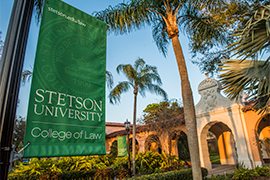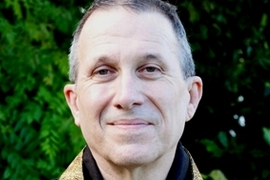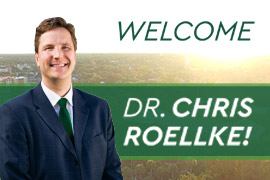Stetson Conducts 2nd Campus Climate Survey
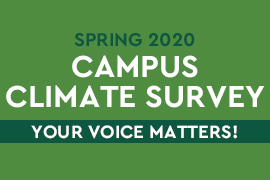

Stetson University and Pryor Education Insights will conduct a Campus Climate Survey from Feb. 3 to March 13 to ask students, faculty and staff about becoming a more diverse, equitable and inclusive community.
The confidential survey will arrive by email to students, faculty and staff on Stetson’s four campuses in DeLand, Celebration, Gulfport and Tampa. The deadline to respond is 11:59 p.m. Friday, March 13.
The survey comes four years after Stetson conducted its first campus climate survey. Many students, faculty and staff may not have been at Stetson in 2016 when the first survey took place. Still, their participation in the upcoming survey will help the university understand the current climate on campus and gauge where improvements are needed.
After the Spring 2016 survey, the university instituted a number of initiatives to promote diversity, including more training for students, faculty and staff, more inclusive hiring practices and protecting freedom of expression on campus.
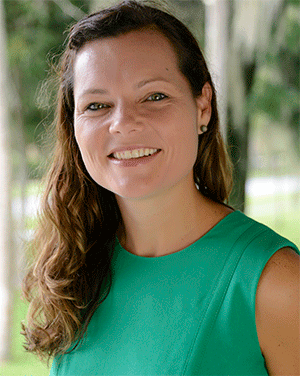
“I am proud of the work we’ve done and I’m not blind to the reality that there is so much work left to do,” said Lua Hancock, EdD, vice president of Campus Life and Student Success.
With the survey about to launch, the chair of the Diversity and Inclusion Committee for the Student Government Association, Stephanie D’Addio, said she is telling students that their participation will be vital.
D’Addio cited several key improvements for students that grew out of the 2016 survey. Stetson formed a Bias Education and Support Team (BEST) to respond to students’ reports of bias-related incidents on the DeLand campus. The team provides education, support and an appropriate resolution in response to bias-related incidents.
Also, the Equity and Inclusion Group (EIG) was created on the DeLand campus, comprising faculty, staff and student members who track Stetson’s progress on these issues and provide updates to the community. The group gathered input from the campus community and, along with its counterpart at the Stetson College of Law, developed an Equity and Inclusion Statement for the university to foster a fundamental cultural change.
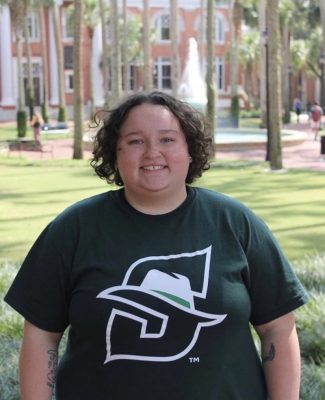
“These surveys have a big impact on what happens on our campus,” said D’Addio, a sophomore psychology major from Vero Beach, Florida. “The last one was crucial to the implementation of the BEST reporting system and the Equity and Inclusion Group, which are vital assets to students.”
Other key outcomes from the first survey include:
• Continuing to attract a more diverse student body. Among undergraduates, the percentage of domestic students of color increased from 29 percent to 34 percent from Fall 2016 to Fall 2019.
• Adopting a “Statement of Principles of Free Expression” to affirm academic freedom and civil discourse, even when expressing views that may be offensive or politically incorrect to some.
• Changing search processes for open positions to attract diverse candidates, resulting in more diversity among finalists and more inclusive hiring for faculty and staff throughout the university.
• Creating a Staff Advisory Council to ensure a positive working environment for staff and give them a stronger voice in university decisions.
• Hiring three part-time chaplains of differing faiths to better support the religiously diverse student population. The university also hired its first Hillel Director and has opened the new Jeffrey and Diane Ginsburg Hillel House on campus for Jewish students.
• Securing funding for the next three years for a Coordinator of Diversity and Inclusion to help support equity and inclusion initiatives at Stetson. The Office of Diversity and Inclusion also gained three office spaces in the Carlton Student Union Building, allowing the staff to build more student engagement and provide a stronger presence outside of the Cross Cultural Center.
At the Stetson College of Law, a Diversity and Inclusion Committee was created and tasked with bringing focus and emphasis to better cross-cultural interaction at the Gulfport and Tampa campuses. The group recommended a number of positive initiatives, such as increasing diversity across programs and constituencies.
These and other tangible accomplishments are important to show students, faculty and staff that their opinions matter to the university and can bring about change, university administrators say.
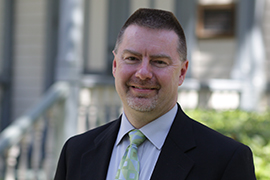
“The data are likely to change considerably in some areas, though the reason for the changes will depend on the area and the work that has been done since 2016,” said Provost and Executive Vice President Noel Painter, PhD. “There will likely be no simple answers to interpreting those changes, but we will be paying attention to the trajectory of the responses relative to the work that has occurred over the last four years.”
Painter said he expects the survey consultant, John Pryor and his Pryor Education Insights, to present the results to students, faculty and staff in Fall 2020. Afterward, a series of community forums will be held for the Stetson community.
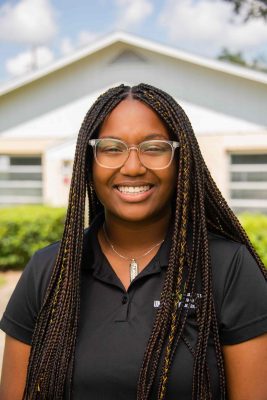
Tahira Perry, chair of the Multicultural Student Council, said the results will help the student group embark on new initiatives and call for any needed action from the Stetson administration.
Perry recalled arriving at Stetson as a first-year student from Jamaica and feeling at times like she was an underrepresented student. She decided to get involved in the MSC. The group comprises nine student groups, including the Black Student Association, Kaleidoscope Gay/Straight Alliance and the Hispanic Organization for Latin Awareness. MSC moved into a new Cross Cultural Center in August 2019.
“I believe that the Campus Climate Survey is extremely important for all members of the student body to give insight upon the overall student experience at Stetson, whether good or bad,” said Perry, a junior biology major. “We want to ensure that students feel heard on campus and have solutions for any culturally sensitive issues that may arise. We also want to be able to spread the importance of safe spaces and resources that ease the transitional journey into this university.”

